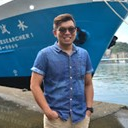Fisheries from the Perspective of Sustainable Development
A special issue of Sustainability (ISSN 2071-1050). This special issue belongs to the section "Sustainable Oceans".
Deadline for manuscript submissions: closed (30 April 2023) | Viewed by 10541
Special Issue Editors
Interests: marine ecosystem services; multiple ocean uses and conflict management; fishing community sustainable development; fishery economics, management, and policy
Special Issues, Collections and Topics in MDPI journals
Interests: fisheries assessment; fisheries ecology; social-ecosystem interaction
Interests: fisheries economics; fisheries management and policy
Special Issues, Collections and Topics in MDPI journals
Special Issue Information
Dear Colleagues,
Over the past few decades, the evolution of technologies to enhance fishing harvests, such as improving fishing efficiency and developing more efficient fishing gear and methods, has resulted in a reduction in global fishery resources and the destruction of marine ecosystems (Worm et al., 2009). In the United Nations Sustainable Development Goals (SDGs), ocean-related issues are independently listed as SDG 14, but ocean sustainability and other aspects of sustainable human development are intertwined and complex. Marine capture fishery is an industry that has the greatest impact on coastal people in the traditional utilization of the ocean, thus marine capture fishery must also consider the harmony of environment, society, and economic development to enhance sustainability. To this end, developing sustainable fisheries is a relatively critical activity necessary for coastal populations to achieve a sustainable livelihood.
This Special Issue will provide an overview of the most recent advances in the field of the sustainable development of fisheries and their applications in diverse areas. This Special Issue will also contain selected contributions on advances in the synthesis, characterization, and application of multiple topics, including but not limited to, the following: sustainable fisheries management, sustainable livelihood for fishers/residents in the fishing community, sustainable seafood consumption, adaptation and resilient development of the fishing industry, seafood education, fisheries co-management, participatory planning, and new technology applications on sustainable fisheries. We look forward to receiving your contributions.
Dr. Jyun-Long Chen
Dr. Ting-Chun Kuo
Dr. Yao-Jen Hsiao
Guest Editors
Manuscript Submission Information
Manuscripts should be submitted online at www.mdpi.com by registering and logging in to this website. Once you are registered, click here to go to the submission form. Manuscripts can be submitted until the deadline. All submissions that pass pre-check are peer-reviewed. Accepted papers will be published continuously in the journal (as soon as accepted) and will be listed together on the special issue website. Research articles, review articles as well as short communications are invited. For planned papers, a title and short abstract (about 100 words) can be sent to the Editorial Office for announcement on this website.
Submitted manuscripts should not have been published previously, nor be under consideration for publication elsewhere (except conference proceedings papers). All manuscripts are thoroughly refereed through a single-blind peer-review process. A guide for authors and other relevant information for submission of manuscripts is available on the Instructions for Authors page. Sustainability is an international peer-reviewed open access semimonthly journal published by MDPI.
Please visit the Instructions for Authors page before submitting a manuscript. The Article Processing Charge (APC) for publication in this open access journal is 2400 CHF (Swiss Francs). Submitted papers should be well formatted and use good English. Authors may use MDPI's English editing service prior to publication or during author revisions.
Keywords
- fisheries management
- sustainable seafood consumption
- adaptation
- resilient budling
- seafood education
- fisheries co-management
- participatory planning
- fisheries policy







